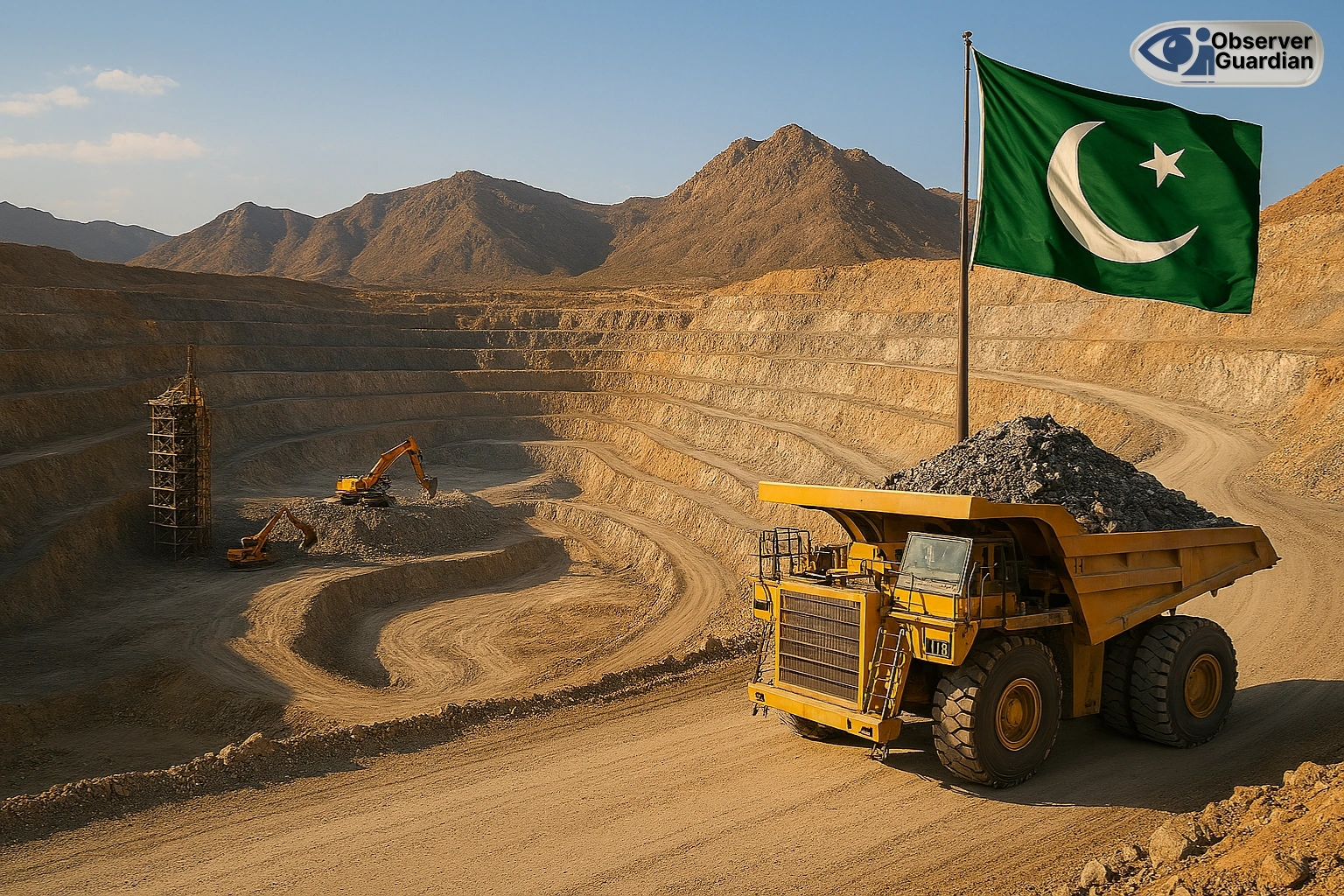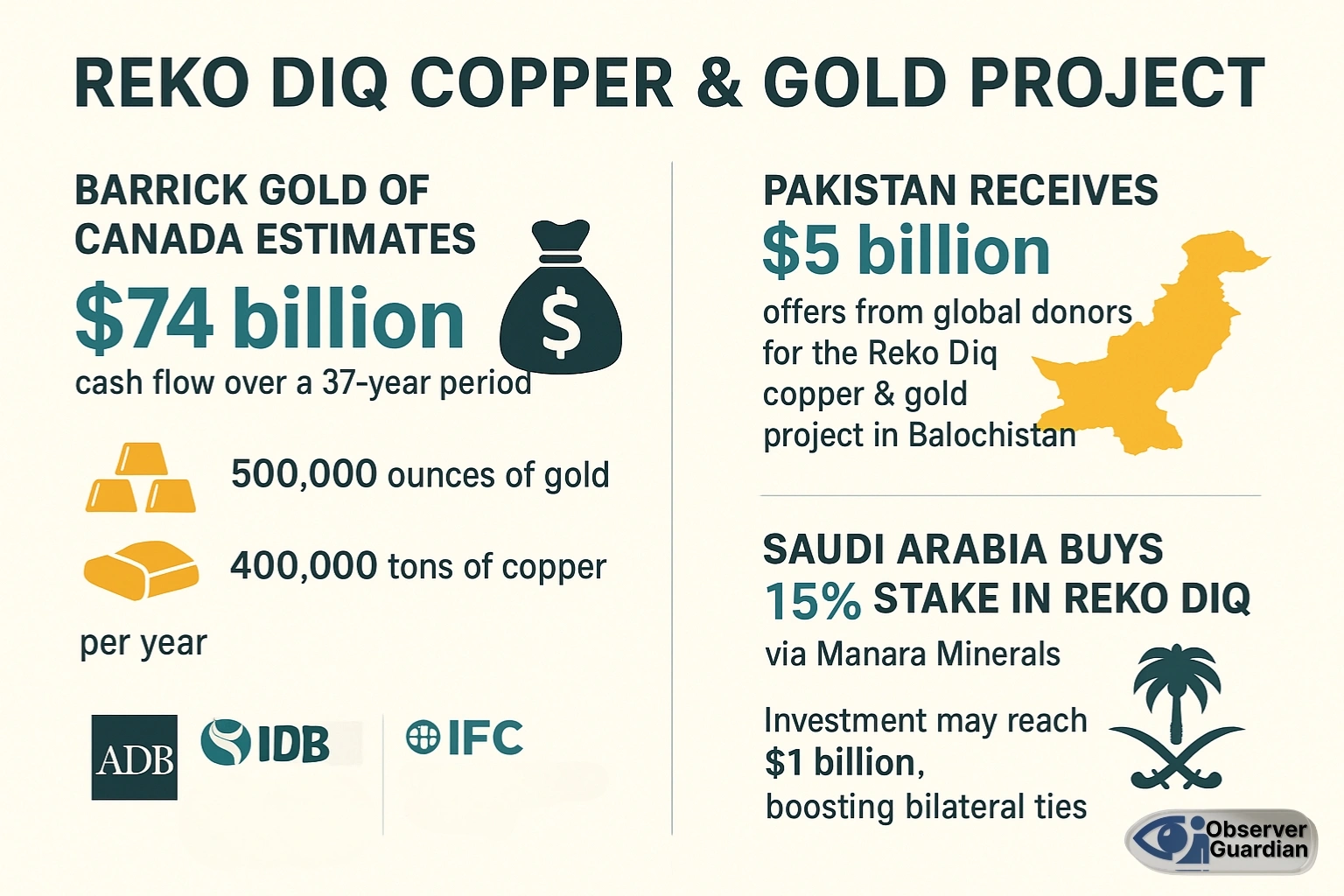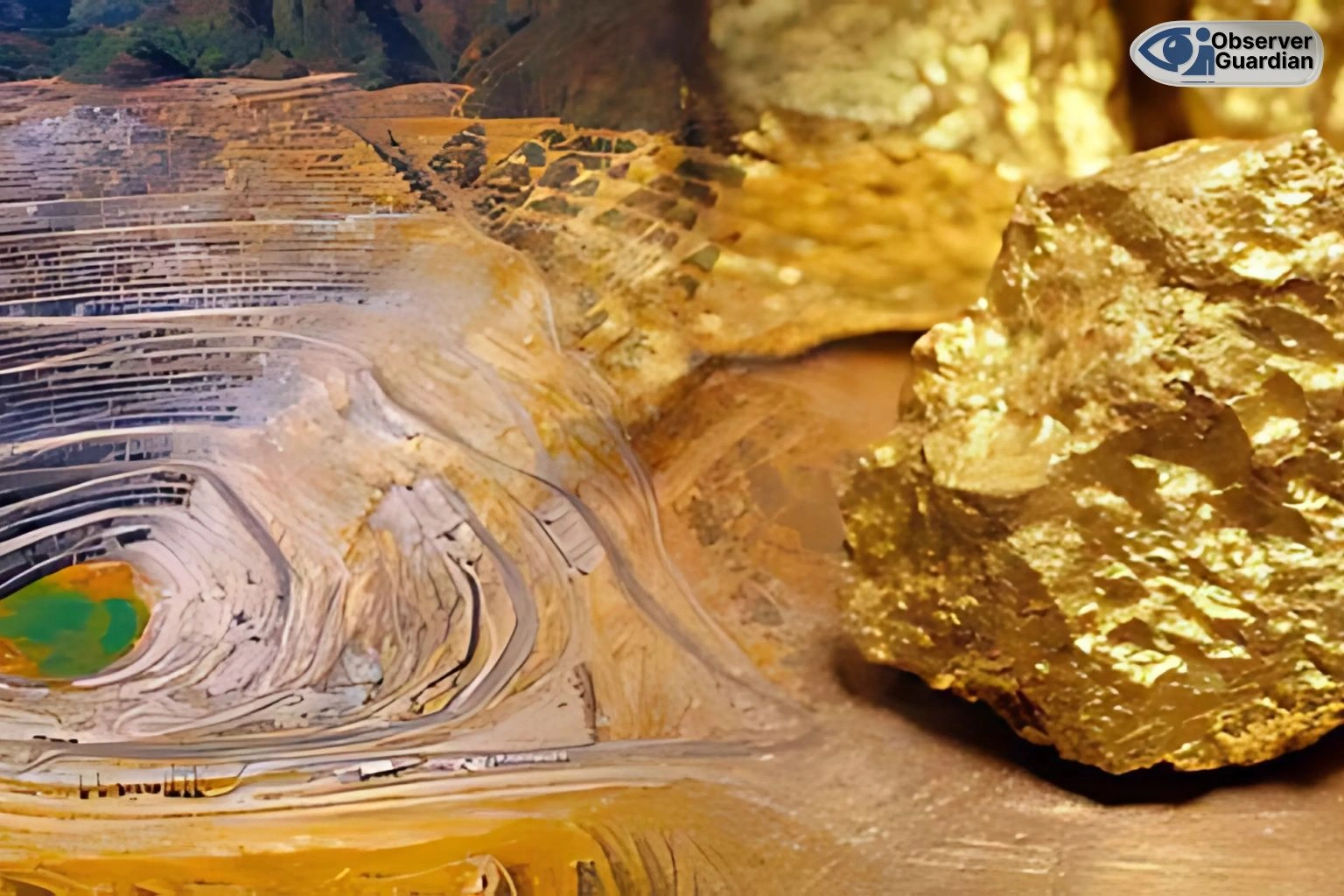The copper and gold project of “Reko Diq” in Baluchistan, Pakistan, is one of the most noteworthy projects in its history. Through this project, Pakistan has achieved more than $5 billion in the form of global financing than its requirement which is $3 billion. International and regional contributors in the project include Asian Development Bank (ADB), Islamic Development Bank (IDB), International Finance Corporation (IFC), US Exim Bank, and development agencies from developed countries like Germany and Denmark etc. have not set any limit on their fundings for the project. Such level of trust and interest of the international regime shows their confidence in Pakistan and its resources. Due to acquiring more than expected finance, Reko Diq has attained global recognition that has potential to transform the growth pace of the economy of Pakistan.
Overview of “Reko Diq”
Pakistan possesses one of the largest untapped natural resources of gold and copper in its province Baluchistan. Due to these unexplored resources of gold and copper, Pakistan has been ranked 5th globally in these minerals. Canada’s Barrick Gold Company holds a share of 50% along with 50% share of Pakistan government in “Reko Diq” for mineral mining. The mining project was designed into two phases and was expected to start in 2028. The first phase was supposed to consume almost $5.5 billion that would result in increasing its production capacity to over $3.5 billion. The project is the indication of the start of a new and bright era for Pakistan in coming years if functioned well.

Economic benefits of “Reko Diq”
The project of mining “Reko Diq” is expected to improve the economic condition of Pakistan in near future. Barrick Gold of Canada has estimated almost $74 billion cash flow over a 37 year upcoming time.
The annual exports of Pakistan have been increased by $2.8 billion in recent years which have reduced its trade deficit.
The improvement in balance of payment and foreign exchange reserves of Pakistan is due to its uncultivated reservoirs of minerals. The main target of the project includes sustainable growth for the decades by production of almost 500,000 ounces of gold and 400,000 tons of copper per year. Along with the revenue generation, Pakistan will witness 4,000 long term operational positions and 7,500 peak construction roles as employment opportunities that would improve the social condition of its marginalized region. So, Reko Diq is not only significant for attracting FDI but also for the welfare of the local community.
Global partnership for “Reko Diq”
International concerns on “Reko Diq” highlight its importance for them.
Along with global and regional banks, Manara Minerals Company of Saudi Arabia is buying almost 15% of its stake by giving $1 billion to the project.
Due to this Saudi investment, Pak Saudi ties have been strengthened majorly in their mining sectors. International Finance Corporation (IFC) has devoted loans and supporting funds of almost $700 million to meet Reko Diq’s requirement of $6.6 billion in total. Such steps from international organizations and governments incorporate Reko Diq into global stakeholders’ networks that ensure Pakistan’s long term economic development in return.
Core infrastructure for Reko Diq
Infrastructure plays a significant role in the practicality of Reko Diq. The railway tracks of Pakistan are the central point for transportation during the project functioning. These railways will be moving gold and copper from Baluchistan to Karachi Port for export purposes. The initial phase of Reko Diq includes upgradation of roads and railways by spending almost $350 million and a possible extension of $800 million further. There is also a probability of restoring the Port Qasim coal terminal for mineral exports to increase its profit. With the help of such advanced infrastructure, Pakistan will be setting an example for incorporated mineral value chains at the global level.

Upgradation of mining sector of Pakistan
Pakistan has the world’s 2nd largest salt reservoir and 5th largest gold and copper deposit. Despite such richness, Pakistan’s mining sector is contributing only 3.2% to its GDP. According to the Baluchistan Board of Investment & Trade, it has explored almost 92 minerals including metallic and nonmetallic resources. The mining industry of Pakistan has been supporting 5,000 mines, 50,000 Small and Medium Sized Enterprises, and around 300,000 jobs that are all undermined due to its infrastructural deficiencies, old fashioned technology, and inadequate funding. Reko Diq has changed the dimension of Pakistan’s finance due to increased FDI and advanced mining technology from developed investors. By proper management of funds and sustainability in the project, Pakistan can uplift its mining sector in upcoming years.
Reko Diq is more than simply a mining operation. It symbolizes the unexplored potential of Pakistan and a turning point in the economy of Baluchistan. The project is expected to generate long term economic benefits for the country like $5 billion in funding process. The international partnership presided over by Barrick Gold of Canada has estimated a cash flow of $74 billion in the upcoming 37 years. Funds in infrastructure will integrate Pakistan’s isolated and marginalized areas into the global world. Upgraded international networks for trade and the creation of employment will improve the social condition of local communities. Good time for Pakistan’s economy and its mining industry is on its way as global demand for gold and copper is rising day by day.
Disclaimer: The views and opinions expressed in this article are exclusively those of the author and do not reflect the official stance, policies, or perspectives of the Platform.







